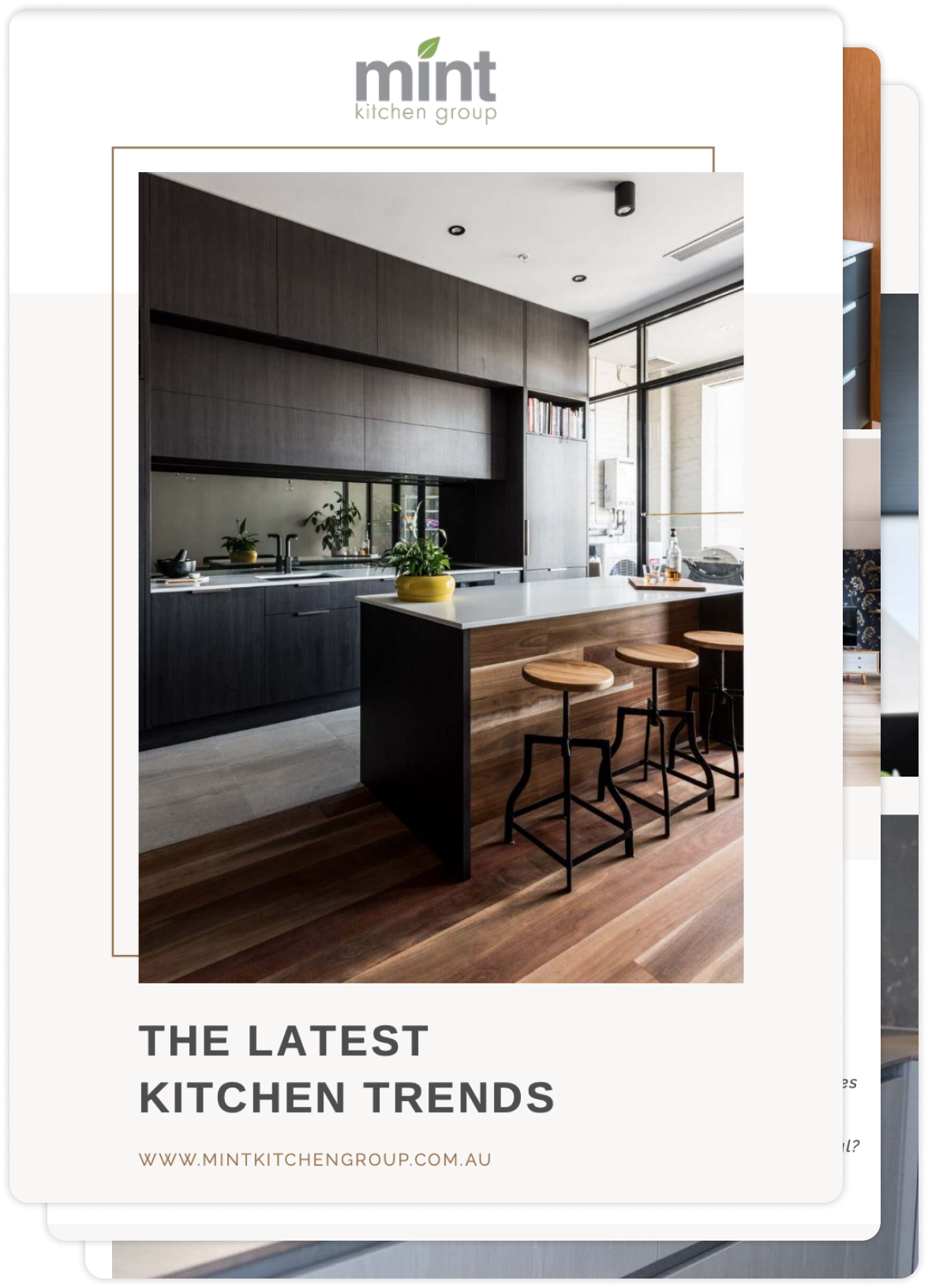Everyone undertaking a kitchen renovation wants to get their materials selections on point—however, when it comes to selecting the best kitchen benchtops, there’s no single set of criteria that will suit everyone. Everyone has their own unique requirements and preferences, whether that be opulence, durability, heat resistance, affordability or character.
Depending on what tops your list of requirements, here’s a quick guide to show you some of the best-performing options to match.
Luxury and Opulence
The Winner: Natural stone
From marble and granite to quartzite, travertine and onyx, nothing can compare to the luxury exuded by a natural stone benchtop. While it does come with a typically high price point and will require regular sealing to keep it in optimal condition, the luxurious properties of this natural material are unmatched.
They’re relatively low-maintenance, durable and will look beautiful for many years to come. As no two pieces of natural stone are ever exactly the same, you’ll also have a kitchen that is truly one-of-a-kind.
Durability
The Winner: Engineered/reconstituted stone
Engineered stone is a non-porous option that is very resistant to stains without requiring sealing. They’re easy to clean, with most varieties also very resistant to chips, scratches and abrasions. They can also generally tolerate chemicals quite well.
While they can be damaged by impact, small cracks and chips can usually be repaired using a resin matched to the colour of the original benchtop to achieve a result that’s almost imperceptible.
Heat Resistance
The Winner: Porcelain
Like the idea of being able to place pans straight off the stove onto your benchtop or quickly putting down a tray taken directly out of a hot oven wherever it’s most convenient? Then porcelain is most likely going to impress.
Porcelain is a toughened stone that can tolerate much higher temperatures than most other benchtop materials. While most engineered stone benchtops can be prone to cracking when exposed to sudden changes in temperature, porcelain can comfortably handle exposure to direct heat up to around 180°C.
Water Resistance
The Winners: Natural stone, engineered stone and porcelain
When considering water resistance, it’s probably best to be aware of the options that don’t perform well. While most stone varieties can comfortably handle regular exposure to water, alternative options such as timber and laminate may not perform as well.
Water is basically the arch nemesis of timber benchtops. While a well-sealed timber benchtop can generally handle the odd splash or two of water provided it’s wiped up quickly, regular or prolonged exposure is likely to cause the timber to swell, warp and discolour.
It’s a similar story for laminate benchtops. While laminate will initially provide good protection against water, if there are any cracks in the laminate surface, water will quickly seep into the substrate material and damage the benchtop.
Affordability
The Winner: Laminate
If you’re renovating on a budget and looking for a benchtop that offers good value for money, it’s hard to go past laminate benchtops.
They’re one of the most affordable options that looks good and is easy to install. Having said that, laminate won’t offer the same lasting durability as many of the alternatives, so make sure you do some research to make sure it’s the right option for you.
Consistency of Design
The Winners: Porcelain, some engineered stone and laminate
The unique nature of natural stone can pose a problem for some homeowners. Every slab is unique, and the stone that gets installed in your new kitchen may look a little different to what you saw in the display centre.
If that’s going to be an issue for you, you have two options—head out to the warehouses to select the exact slab(s) of stone you want for your new kitchen, or opt for a printed engineered alternative.
Advanced printing techniques allow stone benchtop manufacturers to recreate the vein seen in many natural stone designs in high-definition, creating a very realistic looking alternative, with absolutely no variation—what you see in the sample is exactly what you’ll get.
Laminate is another option that will be 100% consistent with the sample, however, it’s a less luxurious option that won’t perform as well in terms of durability or heat resistance.
Character and Charm
The Winner: Timber
If it’s character you’re after, it’s hard to compete with the warm timber tones and textural shape and movement of wood grain. It is however important to note that timber doesn’t offer the same level of durability as other alternatives, and it won’t perform well when exposed to significant amounts of water.
Edgy Design
The Winner: Concrete
If you want to create a cool, industrial urban feel in your kitchen, you can’t go past a form-set concrete benchtop. While concrete benchtops can be fairly brittle and the construction process is far from easy (involving formwork, pouring, setting, sealing and polishing), if you want to go in that direction, the end results can be spectacular!
Discover All the Options for Yourself at Mint Kitchens
Planning a kitchen renovation and want to sample the various benchtop options for yourself? Head into a Mint Kitchens showroom.
Not only do we house an extensive range of benchtop samples and other kitchen finish options for you to consider, but you’ll benefit from our expert advice and guidance along the way.
Take a look at some of what we can do or find a kitchen showroom near you.






Leave a Reply